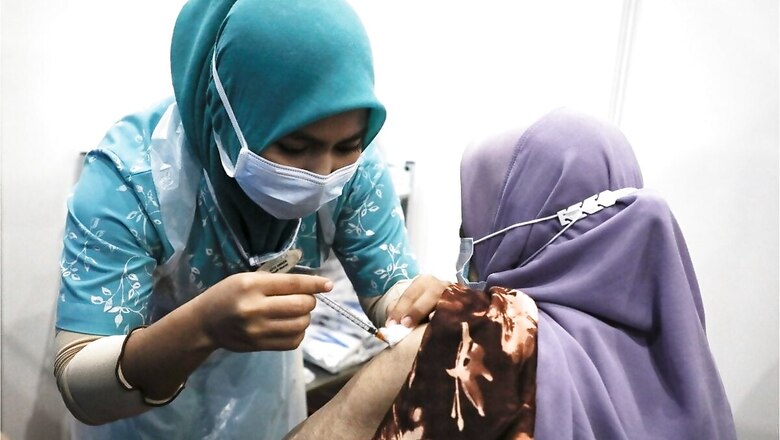
views
With vaccines falling short, countries are now under pressure to find out whether providing two different kinds of vaccines will help fight the virus. According to a recent study, mixing doses of two leading Covid-19 vaccines increased patients’ side effects such as fatigue and headaches in early findings.
According to a report by Bloomberg, people who got the first dose of AstraZeneca Plc’s shot followed by Pfizer Inc.’s vaccine four weeks later reported more short-lived side effects, most of them mild, researchers from the University of Oxford reported in The Lancet medical journal. That was also true when the order of the shots was switched.
In France, for instance, people who got the first dose of the Astra vaccine before the government restricted it to older patients are being offered the vaccine developed by Pfizer and BioNTech SE for their second injection.
“It’s a really intriguing finding and not something that we were necessarily expecting,” said Matthew Snape, an Oxford pediatrics and vaccinology professor who’s leading the trial. “Whether or not this will relate to an improved immune response, we don’t know yet; we’ll be finding out those results in a few weeks’ time.”
Covid-19 vaccination levels have crashed by more than 50% in the first week of May from a month earlier, even as the Centre has expanded the drive, by allowing all adults eligible for the jab, the government’s own statistics show.
About 11.6 million shots were administered from May 1 to May 7, as per the CoWIN platform. This shows an over 50% drop from the record number of 24.7 million vaccinations in the April 3-9 week — immediately after the government allowed all above 45 years to get inoculated.
In fact, the number of jabs given this week is the lowest in the last eight weeks, raising questions about the efficacy of the new universal vaccination policy rolled out this month. From May 1, the government brought all adults under the vaccination programme.
At 13.4 million, more jabs, for example, were given in the March 13-19 week, when the exercise was open only for the 60+ age group and those between age 45-59 with comorbidities, apart from the frontline and health workers. Before vaccination opened for all, the country saw 14.8 million jabs given from April 24 to April 30. India’s vaccination drive began on January 16 with health care workers and then was then expanded to include frontline workers.
Read all the Latest News, Breaking News and Coronavirus News here. Follow us on Facebook, Twitter and Telegram.

















Comments
0 comment